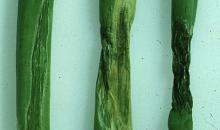What is EPPO Global Database?
EPPO Global Database is maintained by the Secretariat of the European and Mediterranean Plant Protection Organization (EPPO). The aim of the database is to provide all pest-specific information that has been produced or collected by EPPO. The database contents are constantly being updated by the EPPO Secretariat.
Current contents:
- Basic information for more than 98 500 species of interest to agriculture, forestry and plant protection: plants (cultivated and wild) and pests (including pathogens and invasive alien plants). For each species: scientific names, synonyms, common names in different languages, taxonomic position, and EPPO Codes are given.
- Detailed information for more than 1 900 pest species that are of regulatory interest (EPPO and EU listed pests, as well as pests regulated in other parts of the world). For each pest: geographical distribution (with a world map), host plants and categorization (quarantine status) are given. Where appropriate, vectors and biological control agents.
- EPPO datasheets and PRA reports.
- EPPO Standards.
- Pictures of plants and pests (more than 16 000).
- Articles of the EPPO Reporting Service (since 1974).
- Links to other EPPO databases (Platform on PRAs, EPPO Q-bank, Platform on communication material)
- EPPO harmonized classification and coding of the uses of plant protection products (tree view | main categories)
How to cite EPPO Global Database?
EPPO (2026) EPPO Global Database. https://gd.eppo.int [accessed date]
Why register to the EPPO Global Database?
In order to identify users and contributors to the database, the EPPO Secretariat invites you to register. Registration (free and simple) will also allow you:
- To save your own settings (e.g. language preferences) and search history
- To contribute by proposing photos of plants and pests
- To subscribe to EPPO free Newsletters (EPPO Standards, EPPO Reporting Service, EPPO Codes)
- To use quick and simple online tools (batch queries to the database)
- To request new EPPO Codes to be created (subject to fees)
Latest news
EPPO Reporting Service no. 11 and 12 is now available.
New datasheets are available for:
- Harringtonia lauricola
- Meloidogyne graminicola
New world distributions are available for:
| - Amrasca biguttula |
- Pyricularia oryzae Triticum lineage
New pictures have been added for:
- Bactrocera dorsalis
- Closterovirus fragariae
- Nepovirus avii
- Myriophyllum aquaticum
- Persicaria perfoliata
- Velarivirus nanoavii
The EPPO Secretariat warmly thanks all photographers who have kindly provided their photos. More pictures of plants, pests and diseases are always welcome!




